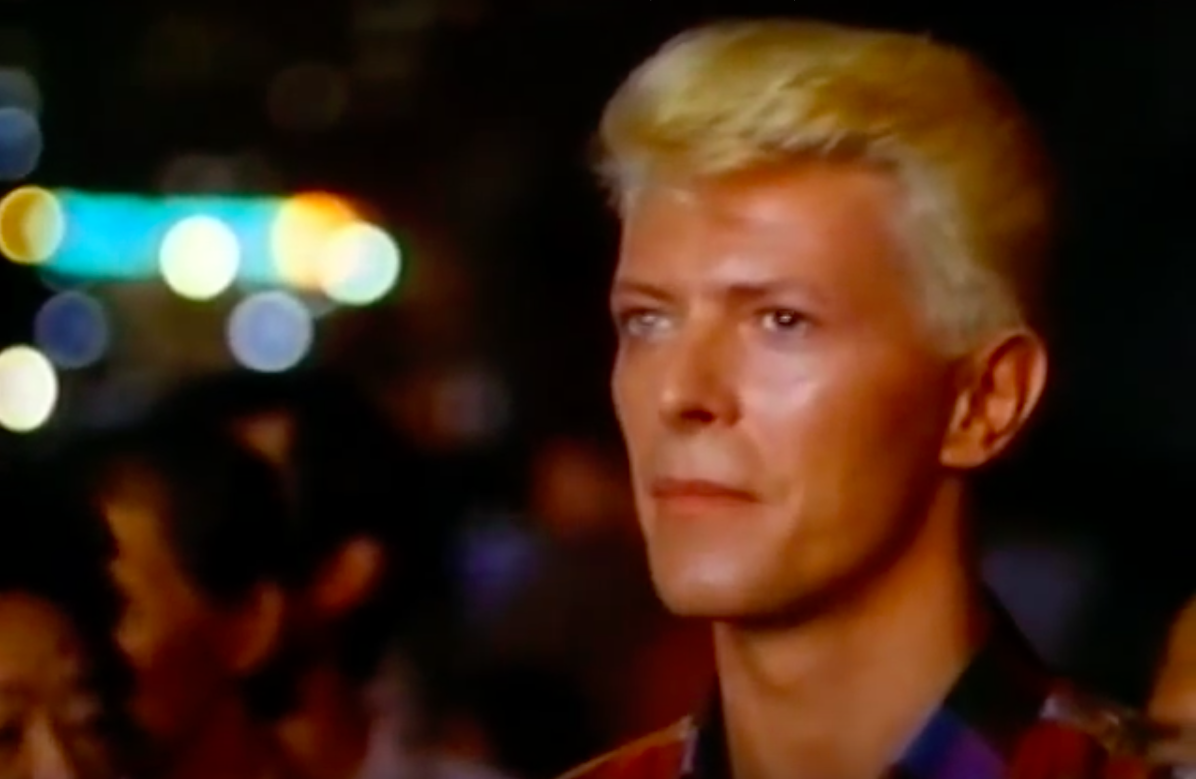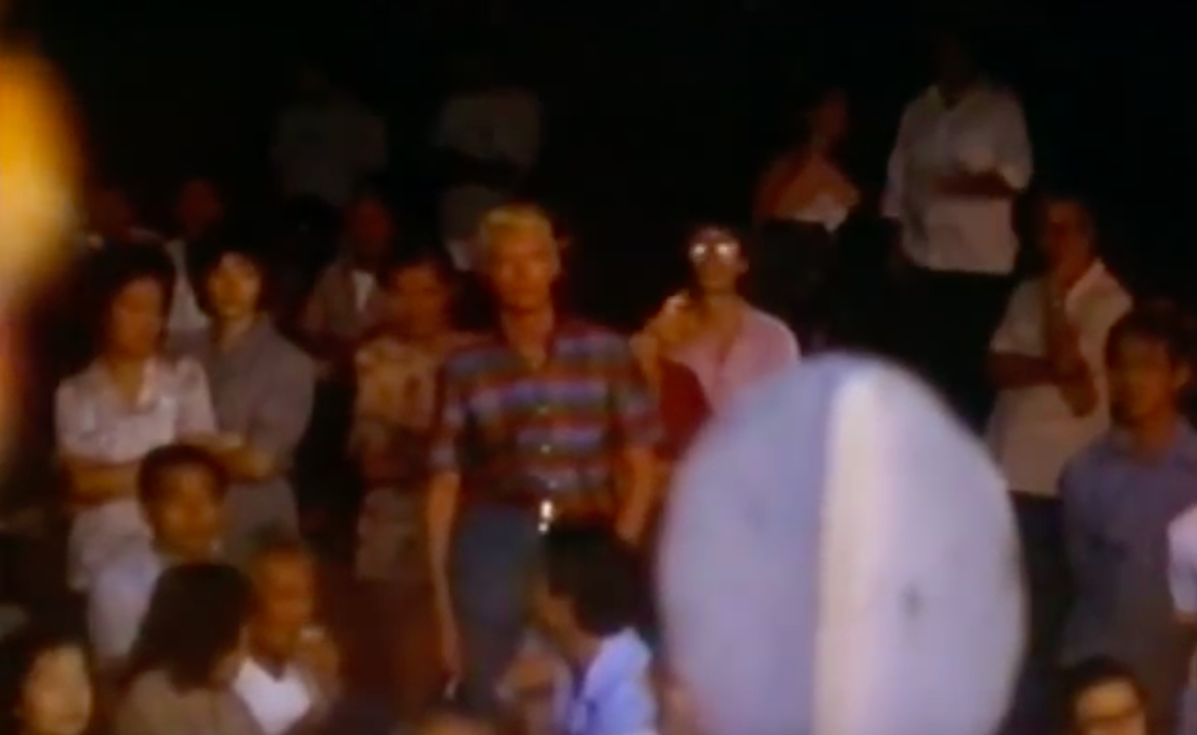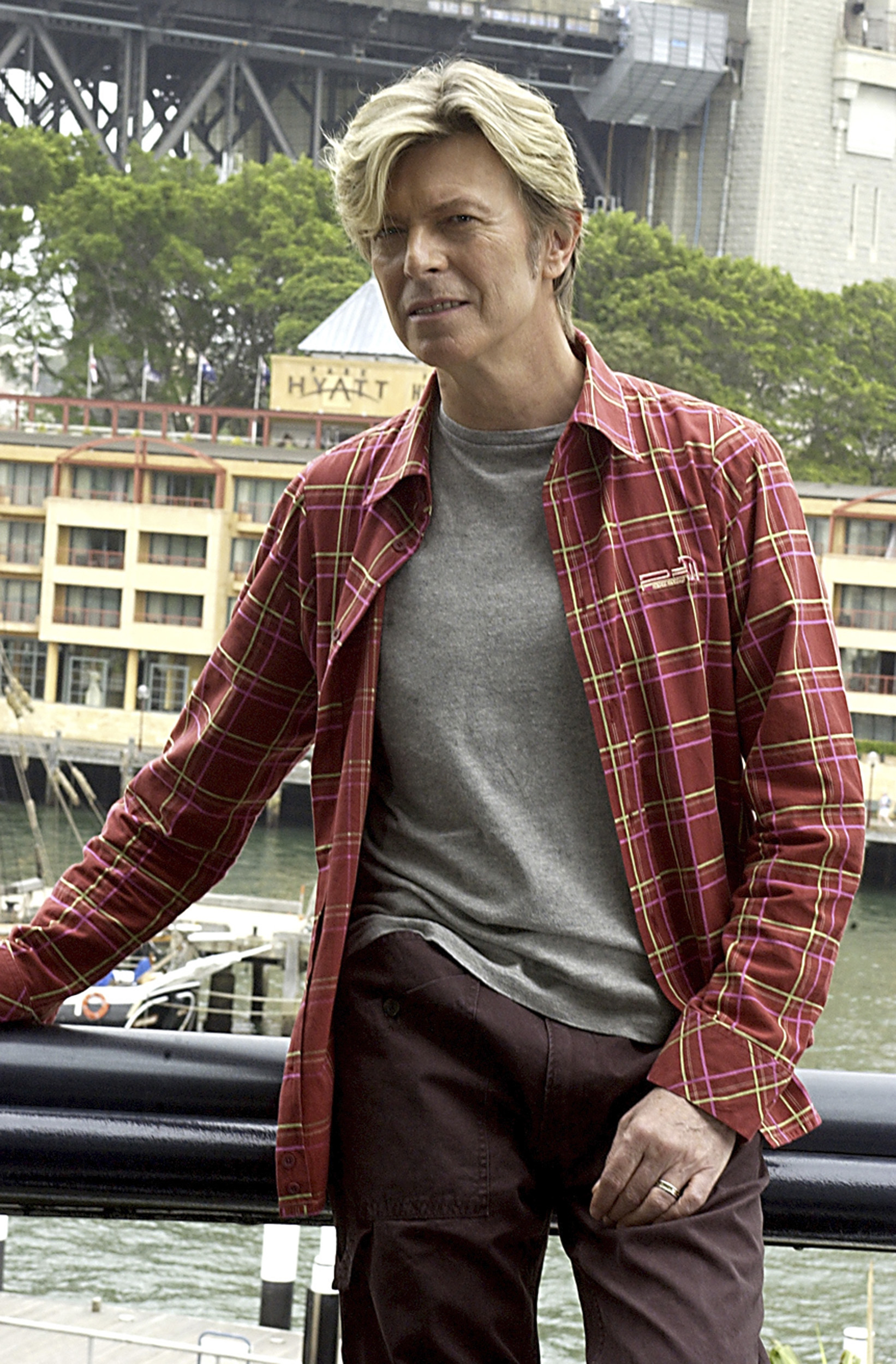The late rock music legend David Bowie may not make that much of an impression on you if you're younger, and maybe not that into rock & roll, but his first expedition to Singapore certainly seemed to have made one on him.
We now know about the full-length documentary, Ricochet, that came to light, showing Bowie traipsing around our little island — this being right after Far East Plaza opened, by the way.
As it turns out, he also wrote about his time here in the introduction to his 1984 book based upon his Serious Moonlight World Tour that happened the year before. Apart from Singapore, he also visited Bangkok and Hong Kong as part of the tour's Asian leg.
We extract some gems from it:
1. The quintessential Singaporean experience: a conversation with a taxi driver.
"During the cab ride to the Ming Court Hotel, I direct a string of unrelenting tourist questions at the driver. Where's the old part of town? Is this the Arab or Chinese or Malay section? Why are they pulling down all the picturesque stuff? He lets me know in no uncertain terms that the new apartment blocks with their bathrooms and air conditioning are far more in favor with families of five or six than are the rat- and cockroach-infested unsanitary slums that I take as local color. I'm crushed. He then goes on to tell me about the recent drug-related hangings. "Many people hang one day. Fourteen years old up to seventy. Death just for smoking the hashish. We clean up town."
The driver also lets slip how hard it is for him to keep up the relentless upward spiralling cost of living. He hasn't ever had a holiday and thinks he may have taken a dew days off work about four years ago. "But everybody works," he says. "Singapore will be next Hong Kong.""
2. How difficult it was for him to make an appearance at a youth club.
"The Singapore authorities are not friendly toward rock & roll. Two of my songs, "China Girl" and "Modern Love", were banned from radio play. "Restricted," as they say. Our wonderful and fearless promoter, Dr. Goh Poh Seng, risked his livelihood, bank balance, and even his freedom to get me and my band into his country. When the authorities heard I was going to an impromptu guest appearance at this youth club two days before our major gig, they busted it, banned the resident band for indecent performance, and threatened Dr. Pohseng with imprisonment if a guest of the club - (me) - should get up on stage and sing. He also faced incredible local resistance in getting the staging and lights together. When he asked for three yards of cable, local supplier - knowing it was for rock & roll - would only sell him a 100-yard drum. No one would lease him timber for the stage, so he ended up buying an architect-designed permanent structure at ten times the cost... and so it went, over and over.
The lights were flown in from all over Malaysia. Many arrived broken, and those intact not much more powerful than a bedroom lamp. But, good lord, he tried."
 Screenshot from video
Screenshot from video
[related_story]
3. And this lovely paragraph:
"The warm night air bathes our bodies, and the scents and smells of the East grown stronger as the evening grows longer. For a moment I feel I am playing to the tiger-infested jungle that existed here until the arrival of concrete a few short decades ago. There is an audible breakdown of reserve as curious uplifting faces recognize this song, then that one. They are singing along. It is an overwhelming experience for me and for any artist, I suppose, to see an audience of a culture ostensibly so far removed from one's own, singing along. It may not should like a big deal, but for one night it can mean everything."
We also came across a blog post from Nanyang Technological University senior film lecturer Benjamin Slater that shares more context to Bowie's days here —
Bowie had arrived in Singapore a few days before the gig and found there was a strong possibility that the concert would be cancelled...
(His promoter) was Goh Poh Seng; doctor, poet, playwright, novelist, night-club and live music impresario. Goh (who died in January2010) was a fervent champion of the arts in all incarnations, including pop music. A year before he’d received the Cultural Medallion, the biggest gong that the Singapore state bestows on artists, but that didn’t stop him facing resistance all the way with the Bowie show, which was taking place in Singapore's largest venue, the now-closed National Stadium. Goh had taken it on at the last minute and it was (at that time) the biggest concert that anyone had ever organised in Singapore. “You need at least three months to prepare for a concert like this, if you’re sane,” Goh told The Straits Times when it was announced, “we’re doing it in one month.” Bowie describes him as “wonderful and fearless.”
...
Troyna recalls that until the gig happened they all “thought we were going to get thrown out.” This situation isn’t referred to in Ricochet, but a high level of tension and discontent creeps into the Singapore segment. Troyna says that the script outlined the “points we wanted to make about each country", Singapore was intended to reflect “alienation and submission to the state”.
 Here's him watching a wayang show among the crowd. (Screenshot from video)
Here's him watching a wayang show among the crowd. (Screenshot from video)
Read Bowie's entire reflection on Singapore here:
When Doubleday, the publishers of this book, asked for my own feelings on the Serious Moonlight Tour '83, my mind panicked. My thoughts shuttled back and forth through a plethora of emotions: American ecstasy and depressions. European familiarity and isolation. Eastern promise and suspicion. How on earth could I compress such an abundance of images and impressions onto a few pages? The old diary trick! That should do it. Let instant thoughts and sensations summarize it all. Describe one day and hope that would provide a partial idea of touring in 1983.
SINGAPORE
Whenever the faces of stewardesses blanch gray-white with fear, and the overhead cupboards open and spill their contents, I hold my little metal Buddha tight and press the crucifix to my chest and tell myself it's just another airplane landing. As near-hurricane winds knock about the inevitable D.C. 10 and pea-soup clouds annihilate even a fantasy of visibility, I hold back the urge to scream, and I remember how bad driving in New York can be these days. But then, even before I have formulated these thoughts into pure terror, the clouds are sucked upward and away, and we are two and a half inches above the waters of Singapore.
For me the Eastern leg of a tour is always the carrot. For the rest, however magical the chemistry of the performance, they day-to-day mechanics of getting from city to city are draining and monumentally boring. That's the stick.
During the cab ride to the Ming Court Hotel, I direct a string of unrelenting tourist questions at the driver. Where's the old part of town? Is this the Arab or Chinese or Malay section? Why are they pulling down all the picturesque stuff? He lets know in no uncertain terms that the new apartment blocks with their bathrooms and air conditioning are far more in favor with families of five or six than are the rat- and cockroach-infested unsanitary slums that I take as local color. I'm crushed. He then goes on to tell me about the recent drug-related hangings. "Many people hang one day. Fourteen years old up to seventy. Death just for smoking the hashish. We clean up town."
The driver also lets slip how hard it is for him to keep up the relentless upward spiralling cost of living. He hasn't ever had a holiday and thinks he may have taken a dew days off work about four years ago. "But everybody works," he says. "Singapore will be next Hong Kong."
When I move into my suite at the Ming Court Hotel, the little Malay porter indicates the three-tone carpet, the ten-channel T.V. He is bursting with pride about the bathrooms but is visually awed by the three hundred square feet of personal freedom. He paces the room from wall to wall. "So much space," he sighs.
The Singapore authorities are not friendly toward rock & roll. Two of my songs, "China Girl" and "Modern Love", were banned from radio play. "Restricted," as they say. Our wonderful and fearless promoter, Dr. Goh Poh Seng, risked his livelihood, bank balance, and even his freedom to get me and my band into his country. When the authorities heard I was going to an impromptu guest appearance at this youth club two days before our major gig, they busted it, banned the resident band for indecent performance, and threatened Dr. Poh Seng with imprisonment if a guest of the club - (me) - should get up on stage and sing. He also faced incredible local resistance in getting the staging and lights together. When he asked for three yards of cable, local supplier - knowing it was for rock & roll - would only sell him a 100-yard drum. No one would lease him timber for the stage, so he ended up buying an architect-designed permanent structure at ten times the cost... and so it went, over and over.
The lights were flown in from all over Malaysia. Many arrived broken, and those intact not much more powerful than a bedroom lamp. But, good lord, he tried.
I am supposed to say something to the children in the Singapore audience. These children who are doomed to ride the up escalator forever. These American-designed fiber glass light-conducting interested-inscrutable faces. I stand on a beautifully improvised high-tech kitchen-unit stage, and I am shocked at how loose-eyed and shoddy my songs seem in the face of the fact that these green- and red-streaked kids represent a thousand-year-old culture. As if in agreement with the cultural difference, the local authorities have separated me from the kids with a 65-foot ramp between the first row and stage. I do mean kids and I do mean separated!
I rip through a welcome and an introduction to the band in Chinese. It is received with dutiful sympathy by the crowd as my pronunciation is so dreadful that not one word is understood. The audience end of the ramp is so far away from the band that I am singing half a beat behind them. I look back and see a tiny, jumping Carlos Alomar leading a badly lit rock & roll group. I peer out and see paramilitary cops at the ratio of about one to two with the first row. They finger their billy clubs, their hands on their guns. My jacked style is designer Tokyo - skyscrapers and diamante searchlights. There is so much lacquer in my hair that a hurricane couldn't move it. My shirt is held into my pants by elastic thongs round my legs. I have two pairs of socks on because over oversized shoes. I am imploring the crowd, "put on your red shoes"... there is a scream of recognition - 15,000 strong. A tiger-print-clad girl is slapped back over the security boundary by a ferocious swing of a billy club.
In a city where you can be arrested for chewing gum, a demand to put on red shoes is deemed unhealthy.
The warm night air bathes our bodies, and the scents and smells of the East grown stronger as the evening grows longer. For a moment I feel I am playing to the tiger-infested jungle that existed here until the arrival of concrete a few short decades ago. There is an audible breakdown of reserve as curious uplifting faces recognize this song, then that one. They are singing along. It is an overwhelming experience for me and for any artist, I suppose, to see an audience of a culture ostensibly so far removed from one's own, singing along. It may not should like a big deal, but for one night it can mean everything.
Now we are all dancing and loving each other and having the greatest of times. We are back for an encore, and the crowds swell up over the ramp. We touch hands and inspire each other on. All at once my songs sound very good, and I get another elusive glimpse of how lucky I am to be doing what I do. I think I may tour again.
Here are unrelated articles you should check out next:
You need to get with the times, both for your bank account and your life
Here are some ways Singaporeans needlessly lose money
Top photo from Thinkstock.
If you like what you read, follow us on Facebook, Instagram, Twitter and Telegram to get the latest updates.
